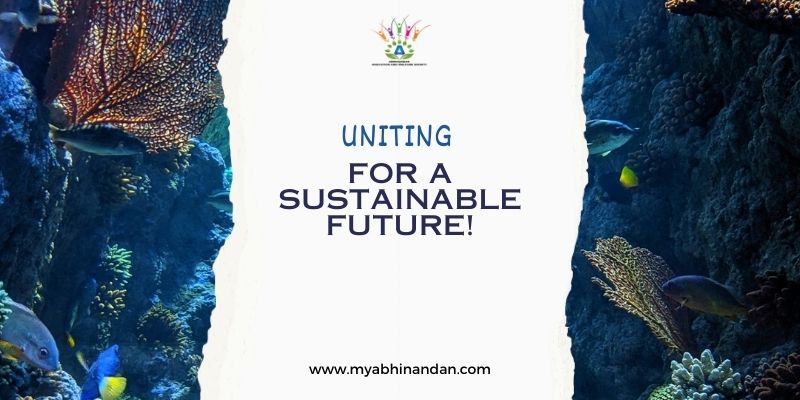As the date of Earth Day approaches, it is essential to shift our attention to one of the most crucial ecosystems on our planet. We must take action to protect and conserve our oceans for a sustainable future. Our oceans cover more than 70% of Earth’s surface, providing us with food, oxygen, and endless wonders. However, they are facing unprecedented threats from pollution, overfishing, and climate change. This Earth Day, let’s dive deep into the importance of marine conservation and how each of us can play a role in preserving our oceans for future generations.
The Beauty of Our Oceans
Close your eyes and imagine standing on the shores of a pristine beach, with crystal-clear water gently lapping at your feet. The vibrant colors of coral reefs dance beneath the surface, teeming with life in every shape and size imaginable. From majestic whales to tiny plankton, our oceans are home to a staggering array of species, each playing a unique role in the delicate balance of marine ecosystems.
But this beauty is under threat. Pollution from plastic waste, chemicals, and oil spills is choking our oceans and endangering marine life. Coral reefs, often called the “rainforests of the sea,” are bleaching at an alarming rate due to rising water temperatures caused by climate change. Without immediate action, we risk losing these precious ecosystems forever.
The Importance of Marine Conservation
Why should we care about protecting our oceans? The answer is simple: our survival depends on it. Oceans produce over half of the world’s oxygen, regulate our climate, and provide a vital source of food and livelihood for billions of people around the globe. From the fish on our dinner plates to the oxygen we breathe, we owe a debt of gratitude to the oceans for sustaining life on Earth.
Marine conservation is not just about saving cute dolphins or majestic sea turtles (although they are worth saving!). It’s about preserving the intricate web of life that supports all living organisms, including us. By protecting marine ecosystems, we are safeguarding our future and ensuring a healthy planet for generations to come.
Actions for Marine Conservation
So, what can we do to help protect our oceans? Fortunately, there are plenty of simple actions that each of us can take, starting right in our own homes:
1. Reduce, Reuse, Recycle: Cut down on single-use plastics like bottles, bags, and straws, and opt for reusable alternatives instead. By reducing our plastic consumption, we can prevent millions of tons of plastic from ending up in the ocean each year.
2. Support Sustainable Seafood: Choose seafood that is sustainably sourced and harvested, such as MSC-certified fish or seafood from responsible aquaculture operations. By supporting sustainable fishing practices, we can help ensure the long-term health of fish populations and marine ecosystems.
3. Minimize Chemical Pollution: Be mindful of the products you use at home and opt for eco-friendly alternatives whenever possible. Avoid using harsh chemicals like pesticides and fertilizers in your garden, as these can leach into waterways and harm marine life.
4. Get Involved: Join local beach clean-up efforts, volunteer with marine conservation organizations, or participate in citizen science projects to help monitor the health of our oceans. By getting involved in your community, you can make a real difference in the fight to protect our oceans.
Our Thoughts
As we celebrate Earth Day 2024, let’s remember the importance of preserving our oceans for future generations. Whether you live near the coast or thousands of miles inland, the health of our oceans affects us all. By making simple changes to our daily habits for stronger Environmental Conservation, we can ensure that our oceans remain vibrant and thriving for years to come. Together, let’s work towards a brighter, bluer future for our planet and all its inhabitants.
